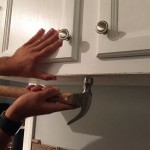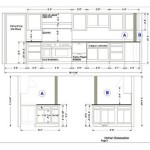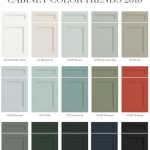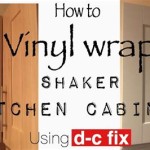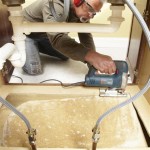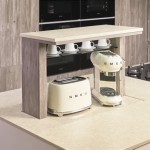Kitchen Cabinet Sticky Paper: A Comprehensive Guide
Tired of outdated or lackluster kitchen cabinets? Kitchen cabinet sticky paper offers a budget-friendly and convenient solution to transform your kitchen's aesthetics. This self-adhesive paper comes in a wide array of styles and finishes, allowing you to customize your cabinets to match any decor.
Benefits of Kitchen Cabinet Sticky Paper
- Cost-effective: Compared to replacing or refinishing cabinets, sticky paper is significantly more affordable.
- DIY-friendly: The application process is straightforward and can be completed by anyone with basic DIY skills.
- Versatile: Sticky paper is available in a range of colors, patterns, and textures, providing countless design possibilities.
- Quick and easy: The application and removal process is relatively quick and hassle-free.
- Easy to clean: Sticky paper is resistant to water and stains, making it easy to maintain.
Types of Kitchen Cabinet Sticky Paper
There are two main types of kitchen cabinet sticky paper:
- Peel-and-stick: This type has a self-adhesive backing that allows for easy application. It is ideal for smooth surfaces.
- Non-adhesive: This type requires additional adhesive, such as contact cement. It is suitable for textured or uneven surfaces.
Choosing the Right Sticky Paper
When selecting kitchen cabinet sticky paper, consider the following factors:
- Style: Choose a style that complements your kitchen's decor. Consider the color, pattern, and texture.
- Finish: Choose a finish that is durable and easy to clean. Options include matte, glossy, or textured.
- Size: Measure the area you want to cover to ensure you purchase enough paper.
- Application: Determine the type of sticky paper (peel-and-stick or non-adhesive) that is suitable for your cabinet surfaces.
Step-by-Step Application Guide
- Clean and prepare the surface: Remove any dirt or grease from the cabinet surface using a cleaning solution.
- Measure and cut the paper: Measure the cabinet door or drawer and cut the sticky paper to size. Leave a slight overhang for wrapping around the edges.
- Apply the paper: Starting from the center, gradually peel the backing and apply the paper to the surface, smoothing out any bubbles or wrinkles.
- Wrap the edges: Use a heat gun or hair dryer to soften the adhesive and carefully wrap the paper around the edges of the cabinet.
- Trim the excess: Once the paper is applied, use a utility knife to trim any excess around the edges.
- Use a sharp utility knife for precise cuts.
- Smooth out any bubbles or wrinkles as soon as you apply the paper.
- Apply heat to the adhesive for better bonding.
- Allow the paper to cure for several hours before using your cabinets.
Tips for Successful Application
Conclusion
Kitchen cabinet sticky paper offers a quick, easy, and affordable way to upgrade your kitchen's look. By following the guidelines outlined in this comprehensive guide, you can achieve a professional-looking finish that will transform your kitchen into a stylish and inviting space.

Contact Paper In The Kitchen 5 Places

1m Roll Glossy Waterproof Pvc Cabinet Wallpaper Self Adhesive Contact Paper For Door Furniture Stickers Bathroom Kitchen Wish Cabinets Wall

Spruce Up The Outside Of Your Kitchen Cabinets With Contact Paper Offbeat Home Life

Marble Kitchen Cabinet Contact Paper Self Adhesive Wallpaper

Diy Kitchen Cabinet Makeover L And Stick Contact Paper Cabinets

How To Update Cabinets Using Contact Paper Al Kitchen Makeover Cover

When Your Landlord Says Paint Is Out Of The Question Try Contact Paper For Cabinets Domino

How To Update Cabinets With Contact Paper The Handyman S Daughter

Diy Kitchen Cabinet Makeover Totally Covered Door With Customized Contact Paper Truly Hand Picked
Temporary Contact Paper Kitchen Cabinet Decorations Pink Stripey Socks

